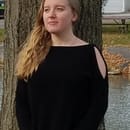As a cis woman, I write this only concerning sexuality labels and not gender labels of which I have little personal experience.
Many of us in the LGBTQ+ community have felt that feeling before, that feeling of being an outcast, of feeling different from those around us. In these moments of feeling excluded, marginalized, we long to be included, to be prioritized. We search for a community to which we can relate, or in some cases stumble upon one without realizing we were looking (but we were indeed looking nonetheless). Beginning to realize that you are not heterosexual, you seek comfort in identifying with the LGBTQ community, which is better conceptualized as an aggregate community of many smaller sub communities based on specific identities. After all, no one identifies as LGBTQ; they identify as gay, bisexual, lesbian, pansexual, asexual, demisexual, etc.
You diligently research, or read up on these identities, reading FAQ’s with questions like “am I bisexual if I…” or “Would I still be considered asexual if…” feeling both silly for having to wonder, and glad somebody else wondered for you. So you find an identity, find your community, the people who you can relate to and depend on …but something doesn’t feel exactly right. Yes, I feel that way but sometimes it’s more like this… or Yes, I experience that, but not in that way… Again, you feel lost. You thought you found where you belong, you thought you found your people. What happened? Are you so unlike anyone else? Are you so strange? Can no one else relate to how you feel? Why can’t you find your people? What is your identity?
Herein lies the problem of labels. Those of us who are lost, especially those of us in vulnerable situations—being young, being bullied or harassed, dealing with mental illness—are searching for a place to feel comfortable. The LGBTQ+ community was there for you, making you feel welcome, but still you feel like you don’t fit in. No one’s meaning to exclude you, but you still feel excluded. In contemporary societies, a person’s sexuality is one aspect that defines them. The creation of more and more specific sexual identities can be a good and a bad thing. Specific identities can help more people feel included, but these identities themselves are often mutually exclusive. You seek a community you relate to, and find that group to be smaller and more limited. Or, you seek a community to relate to…and just don’t find one.
Often we feel if we are missing a name for our sexuality we are missing a name for ourselves. Why? We still exist, feeling how we feel, acting how we act, regardless of our language’s or our culture’s lack of a specific word for what we are. These labels often originated to describe the general behavior of a group, so why do we now use it to describe the specific instances of our every feeling and sexual behavior as an individual, feeling the need to make sure our every thought, consideration, action is included in those expected for our label?
For some of us, saying we are gay—or bisexual, or homoromantic gray asexual—is enough: it’s all we need. It works. If it helps to make you feel more comfortable in your own skin, and in your interaction with others, embrace labels! If you find trouble with labels, consider this: the LGBTQ+ labels exist for us to relate to and understand one another as a community, not to police ourselves or one another about how well we do or do not fit within them. If you want a label because you think a label would help you, pick one. Your label should work to fir you, not you your label. If you have a label you like to you, and grow uncomfortable with it for whatever reason, drop it. Don’t become uncomfortable with your sexuality or your identity. After all, it is the label that is the problem, not you.
In short, labels should be applied only in the case that they would help you, not hurt you. If you can’t find one that fits you exactly, that’s completely fine. For myself, it suffices to say that I am not straight, that I am a member of the LGBT community. I don’t need to explain the intricacies of my identity to anyone else, so why have words for it?

